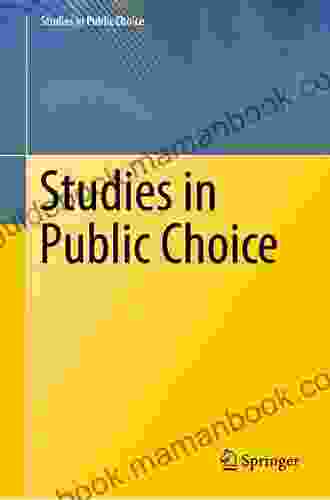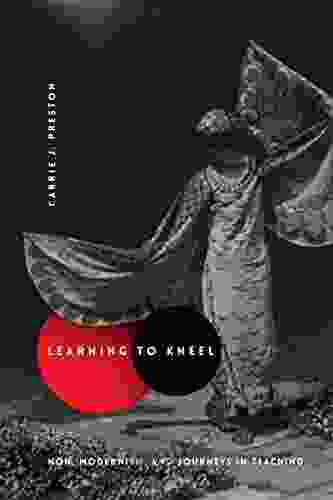Totalitarianism, Terrorism, and Supreme Values: An In-Depth Analysis

Totalitarianism, terrorism, and supreme values are concepts that have profoundly shaped human history and global affairs. This article aims to provide a comprehensive analysis of their interconnectedness and implications for societies around the world. By exploring the underlying ideologies, motivations, and consequences of these phenomena, we gain a deeper understanding of their impact on individuals, nations, and the global community.
4.7 out of 5
| Language | : | English |
| File size | : | 2573 KB |
| Text-to-Speech | : | Enabled |
| Screen Reader | : | Supported |
| Enhanced typesetting | : | Enabled |
| Word Wise | : | Enabled |
| Print length | : | 172 pages |
Totalitarianism: Absolute Control and Suppression of Dissent
Totalitarianism refers to a political system in which the state exerts absolute control over every aspect of society. Key characteristics of totalitarian regimes include:
- Single-party rule: The state is dominated by a single political party, which controls all government functions.
- Ideological indoctrination: The government actively promotes a specific ideology and suppresses any dissent or opposition.
- Personality cult: The leader of the state is glorified and worshipped as infallible.
- State-controlled media: The government tightly controls all forms of media, ensuring that only the state's preferred narrative is disseminated.
- Suppression of civil liberties: Basic human rights, such as freedom of speech, assembly, and religion, are severely restricted or denied.
Motivations and Consequences of Totalitarianism
Totalitarian regimes often arise in times of social and political upheaval or instability. They often appeal to the masses by promising order, security, and a sense of national unity. However, the consequences of totalitarian rule can be devastating, including:
- Human rights violations: Totalitarian regimes systematically violate human rights, including arbitrary arrests, torture, and extrajudicial killings.
- Economic stagnation: Centralized control of the economy stifled innovation and productivity, leading to economic decline.
- Cultural and intellectual repression: Totalitarian regimes suppress artistic expression, scholarship, and critical thinking, creating a climate of fear and conformity.
- Political instability: Totalitarian regimes often face widespread resistance and opposition from within the society they control.
Terrorism: Violence for Political or Ideological Goals
Terrorism refers to the use of violence or the threat of violence to achieve political or ideological goals. It can be carried out by individuals, groups, or even states. Key characteristics of terrorism include:
- Deliberate targeting of civilians: Terrorist attacks are often directed against innocent civilians in order to create fear and psychological impact.
- Political or ideological motivation: Terrorists typically justify their actions based on specific political or ideological beliefs.
- Asymmetric power relations: Terrorists often operate in weaker positions relative to their targets.
- Widespread psychological impact: Terrorism aims to instill fear and insecurity within the target population.
Motivations and Consequences of Terrorism
The motivations for terrorism are complex and varied, but often include:
- Political grievances: Terrorism can be used as a means to express dissatisfaction with political systems or government policies.
- Ideological extremism: Terrorist groups subscribe to extreme ideologies that justify violence as a legitimate means of achieving their goals.
- Religious fundamentalism: Some terrorist organizations are driven by religious beliefs and seek to impose their interpretation of religious law.
The consequences of terrorism are far-reaching and can include:
- Loss of life and injury: Terrorist attacks can result in significant casualties and physical harm.
- Psychological trauma: Terrorism creates a climate of fear and uncertainty, which can have profound psychological effects on individuals.
- Economic damage: Terrorist attacks disrupt livelihoods and negatively impact economic growth.
- Polarization and social unrest: Terrorism can exacerbate existing social and political tensions.
Supreme Values: Shaping Ideology and Justifying Violence
Supreme values play a crucial role in shaping the ideologies of both totalitarian regimes and terrorist groups. These supreme values are often absolutist and provide the justification for the use of violence or suppression of dissent. Examples of supreme values that have been invoked in this context include:
- National unity: Totalitarian regimes and terrorist groups often appeal to national unity and patriotism to justify their actions.
- Religious purity: Terrorist organizations motivated by religious fundamentalism often seek to establish a society based on their interpretation of religious law.
- Social justice: Some totalitarian regimes claim to be fighting for social justice, while terrorist groups may invoke this value to justify attacks against perceived oppressors.
The absolutist nature of these supreme values makes them resistant to compromise or negotiation. They can create a moral justification for violence and suppression, making it difficult to resolve conflicts through peaceful means.
Interconnections and Implications
Totalitarianism, terrorism, and supreme values are interconnected in complex ways. Totalitarian regimes often use terrorism as a tool to maintain their grip on power and suppress dissent. Terrorist groups, in turn, can find support and justification within totalitarian ideologies. Supreme values provide a moral framework for both totalitarian regimes and terrorist groups, justifying their use of violence and suppression.
The implications of these interconnections are profound. They create a cycle of violence and oppression that can be difficult to break. They also challenge democratic values and the rule of law, threatening the stability and security of nations around the world.
Addressing Totalitarianism, Terrorism, and Supreme Values
Addressing totalitarianism, terrorism, and supreme values requires a multi-pronged approach. This includes:
- Promoting democratic values: Strong democratic institutions and human rights protections are essential for preventing the rise of totalitarian regimes and countering terrorist ideologies.
- Countering extremist narratives: Education and awareness campaigns can help to challenge extremist narratives and promote tolerance and understanding.
- Law enforcement and intelligence: Robust law enforcement and intelligence gathering can help to prevent terrorist plots and disrupt totalitarian activities.
It is also crucial to address the underlying conditions that contribute to the rise of totalitarianism and terrorism, such as poverty, inequality, and political instability. By creating a more just and equitable society, we can reduce the appeal of extremist ideologies and foster a climate of respect and tolerance.
Totalitarianism, terrorism, and supreme values are complex and interconnected phenomena that pose significant challenges to societies around the world. By understanding the ideologies, motivations, and consequences of these phenomena, we can develop more effective strategies to address them. Promoting democratic values, countering extremist narratives, and addressing underlying social and economic problems are essential elements of a comprehensive approach to safeguarding our freedoms and ensuring a peaceful and prosperous future.
4.7 out of 5
| Language | : | English |
| File size | : | 2573 KB |
| Text-to-Speech | : | Enabled |
| Screen Reader | : | Supported |
| Enhanced typesetting | : | Enabled |
| Word Wise | : | Enabled |
| Print length | : | 172 pages |
Do you want to contribute by writing guest posts on this blog?
Please contact us and send us a resume of previous articles that you have written.
 Top Book
Top Book Novel
Novel Fiction
Fiction Nonfiction
Nonfiction Literature
Literature Paperback
Paperback Hardcover
Hardcover E-book
E-book Audiobook
Audiobook Bestseller
Bestseller Classic
Classic Mystery
Mystery Thriller
Thriller Romance
Romance Fantasy
Fantasy Science Fiction
Science Fiction Biography
Biography Memoir
Memoir Autobiography
Autobiography Poetry
Poetry Drama
Drama Historical Fiction
Historical Fiction Self-help
Self-help Young Adult
Young Adult Childrens Books
Childrens Books Graphic Novel
Graphic Novel Anthology
Anthology Series
Series Encyclopedia
Encyclopedia Reference
Reference Guidebook
Guidebook Textbook
Textbook Workbook
Workbook Journal
Journal Diary
Diary Manuscript
Manuscript Folio
Folio Pulp Fiction
Pulp Fiction Short Stories
Short Stories Fairy Tales
Fairy Tales Fables
Fables Mythology
Mythology Philosophy
Philosophy Religion
Religion Spirituality
Spirituality Essays
Essays Critique
Critique Commentary
Commentary Glossary
Glossary Bibliography
Bibliography Index
Index Table of Contents
Table of Contents Preface
Preface Introduction
Introduction Foreword
Foreword Afterword
Afterword Appendices
Appendices Annotations
Annotations Footnotes
Footnotes Epilogue
Epilogue Prologue
Prologue Ton Viet Ta
Ton Viet Ta Napoleon Hill
Napoleon Hill Brian Puerling
Brian Puerling Costanza Casullo
Costanza Casullo Professor Dr Ing Klaus Schwab
Professor Dr Ing Klaus Schwab Alexander Vasiliuk
Alexander Vasiliuk Alexis De Tocqueville
Alexis De Tocqueville Alexander Pope
Alexander Pope Clayton M Christensen
Clayton M Christensen Julissa Cardenas
Julissa Cardenas Wiss Auguste
Wiss Auguste Ingrid Fetell Lee
Ingrid Fetell Lee Shion Miura
Shion Miura Kindle Edition
Kindle Edition Sam P Ridings
Sam P Ridings Danie Ware
Danie Ware Courtney Dial Whitmore
Courtney Dial Whitmore Art Rainer
Art Rainer Joseph Bottum
Joseph Bottum Arduino Rossi
Arduino Rossi
Light bulbAdvertise smarter! Our strategic ad space ensures maximum exposure. Reserve your spot today!

 Natsume SōsekiA Comprehensive Guide to Financial Empowerment: Simple Steps to Get Your...
Natsume SōsekiA Comprehensive Guide to Financial Empowerment: Simple Steps to Get Your... Brody PowellFollow ·16.7k
Brody PowellFollow ·16.7k William FaulknerFollow ·4.1k
William FaulknerFollow ·4.1k Jared PowellFollow ·16.9k
Jared PowellFollow ·16.9k Elliott CarterFollow ·19.8k
Elliott CarterFollow ·19.8k Mike HayesFollow ·2.5k
Mike HayesFollow ·2.5k Blake KennedyFollow ·19.3k
Blake KennedyFollow ·19.3k Michael SimmonsFollow ·10.4k
Michael SimmonsFollow ·10.4k George OrwellFollow ·13.9k
George OrwellFollow ·13.9k
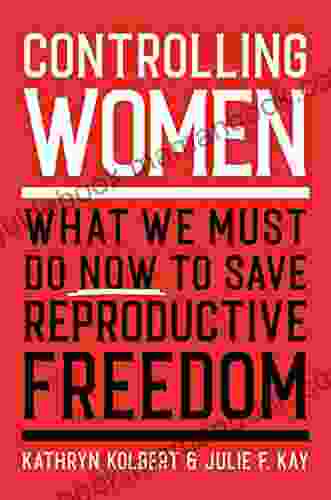
 Leslie Carter
Leslie CarterWhat We Must Do Now To Save Reproductive Freedom
Roe v. Wade, the landmark...

 Cade Simmons
Cade SimmonsThe Unbreakable Bond: Unveiling the Connection Between...
In the realm of...

 Roy Bell
Roy BellFull Contact Chapter Five: The Final Chapter of the Hatch...
In this gripping to the Hatch saga, we...
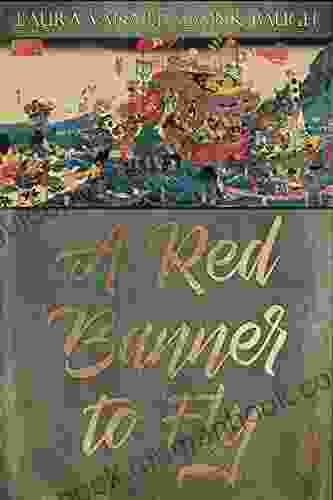
 Fred Foster
Fred FosterUnveiling the Tale of the Genpei Wars: A Comprehensive...
Deep within the annals of Japanese history,...
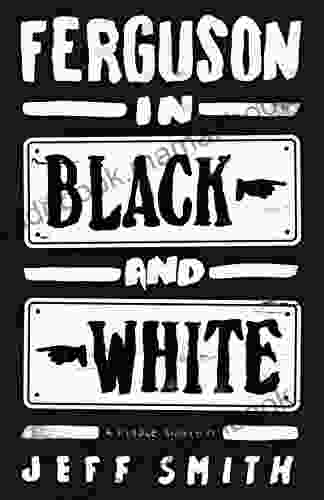
 Jaden Cox
Jaden CoxFerguson in Black and White: A Profound Examination of...
The Ferguson tragedy, sparked by the fatal...
4.7 out of 5
| Language | : | English |
| File size | : | 2573 KB |
| Text-to-Speech | : | Enabled |
| Screen Reader | : | Supported |
| Enhanced typesetting | : | Enabled |
| Word Wise | : | Enabled |
| Print length | : | 172 pages |


